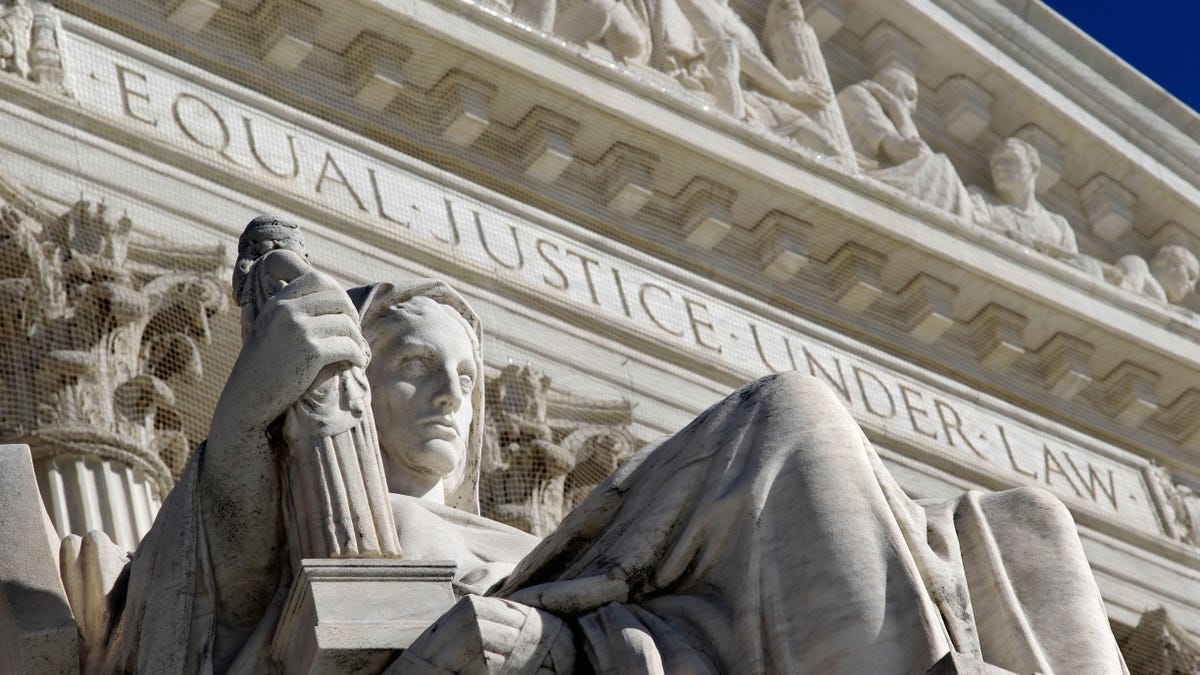
A detail of the West Facade of the U.S. Supreme Court is seen in Washington, Monday, March 7, 2011. (AP) (AP2011)
WASHINGTON -- The Supreme Court seems unlikely to rule for a 9-year-old boy who was born in Jerusalem and wants his U.S. passport to list his place of birth as Israel.
Menachem Zivotofsky and his parents were at the high court Monday for arguments over his challenge to a State Department policy that won't allow his passport to show he was born in Israel.
The Obama administration says the passport policy is in line with longstanding foreign policy that says the status of Jerusalem should be resolved in negotiations.
The Obama administration, like its Republican and Democratic predecessors, says it doesn't want to stir up anger in the Arab world by appearing to take a position on the ultimate fate of Jerusalem. Longstanding U.S. policy says the status of the city that is important to Jews, Muslims and Christians should be resolved in negotiations.
The justices seemed reluctant to question the administration's position that the law was an improper congressional attempt to speak for the country on foreign policy.
But lawyers for Zivotofsky argue that the foreign policy concerns are trivial. Thirty-nine lawmakers from both parties are siding with the boy and his parents, defending a provision in a 2002 law that allows Israel to be listed as the birthplace for Americans born in Jerusalem.
President George W. Bush signed the much larger law, but said the provision on Jerusalem interfered with his power over foreign affairs, including the authority to recognize foreign states. Bush issued a signing statement at the time in which he said that "U.S. policy regarding Jerusalem has not changed."
Israel has proclaimed the once-divided city as its capital; the U.S. and most nations do not recognize Jerusalem as the capital and the U.S. State Department regularly provides a written notice that it will not move its embassy to Jerusalem despite law authorizing it be placed there.
Had Menachem been born in Tel Aviv, the State Department would have issued a passport listing his place of birth as Israel. The regular practice for recording the birth of a U.S. citizen abroad is to list the country where it occurred.
But the department's guide tells consular officials, "For a person born in Jerusalem, write Jerusalem as the place of birth in the passport."
In late 2002, Naomi Zivoktofsky, Menachem's mother, showed up at the U.S. embassy in Tel Aviv to get her baby a U.S. passport, one that listed Israel as his birthplace. After State Department officials refused her request, the family sued.
The Zivotofksys and their supporters at the Supreme Court point out that other federal agencies, including the Defense and Justice Departments, refer in official documents to "Jerusalem, Israel." The legal briefs also note that the hospital where Menachem was born is in west Jerusalem, over which there is no dispute about Israeli sovereignty, except by parties that oppose the nation's existence at all.
The family also says that the State Department has made an exception for U.S citizens born in Taiwan. Their passports may list their place of birth as Taiwan, rather than China.
Federal courts have so far said they have no authority to consider the matter, which they have labeled a political dispute that is best resolved by the other two branches of government without court involvement.




